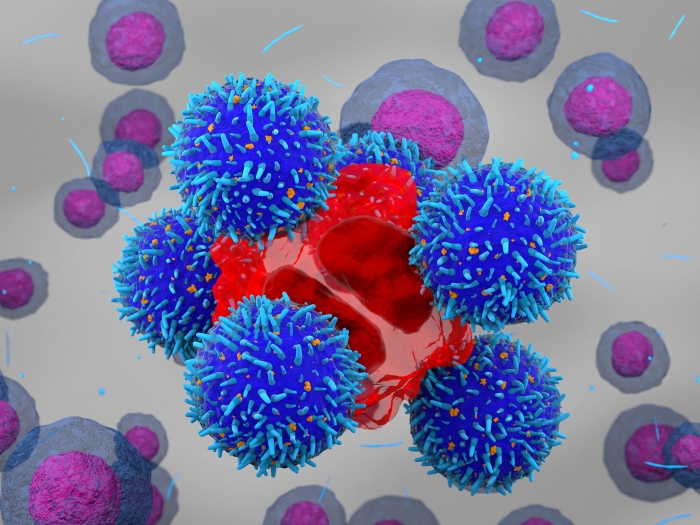The year provided one fascinating research story after another.
11:57 AM
Author |

Another year, another 12 months of dazzling discoveries.
Whether in the clinic or lab, Michigan Medicine investigators are behind some of the most significant innovations and medical advancements to date. Exploring the unknown, researchers dive into areas like COVID-19, health care policy, vascular diseases and more to help better inform practitioners, patients and the development of new treatments.
With almost 300 articles published this year alone, take a walk down memory lane and count down to the most popular story of the year. Can you guess what it is?
10. New pharmacy role targets pain management
Jillian DiClemente, PharmD, is the University of Michigan Health’s only full-time pain management clinical pharmacist-specialist. DiClemente provides clinical expertise about pain management medications to both inpatient and ambulatory care teams, offering expert advice on opioid management and opioid use disorder throughout the entire organization.
9. COVID-19 boosters this fall? Most older adults are ready to roll up their sleeves
A University of Michigan poll found 61% of people over 50 who had already gotten at least one dose of the COVID-19 vaccine were very likely to get the updated booster shot in the fall.
8. Pancreatic cancer cells feed off hyaluronic acid
Hyaluronic acid is a known presence in pancreatic tumors, but a study from researchers at the University of Michigan Health Rogel Cancer Center found that hyaluronic acid also acts as food to cancer cells. The findings, published in eLife, provide insight into how pancreatic cancer cells grow and indicate new possibilities to treat them.
7. This is your gut on sushi
Ever wonder how your microbiome processes seaweed? Researchers at Michigan Medicine did, too. Here's what they found.
6. Aching joints make older adults reach for many forms of pain relief – but health risks could follow
Popping a pill may bring some relief for arthritis-related joint pain, but many adults may not realize that those pills could raise their risk of other health-related problems, or that other non-drug options are available that work.
5. Viral proteins key to tumor model in mice
Researchers created a mouse model of a rare but fatal skin cancer, a scientific discovery that was 10 years in the making.
4. Study helps explain how xanthan gum, a common food additive, is processed in the gut
The study examined the human gut microbiome's ability to digest this recently introduced food ingredient.
3.Simple rubber band fix improves surgical mask seal to N-95 levels, study shows
This easy, cheap fix can help people when and where there are N95 respirator shortages.
2. For glioblastoma, a new clinical trial fosters innovation and hope
A clinical trial used innovative basic science research methods to offer hope and a new treatment to glioblastoma patients.
1. Dietary change starves cancer cells, overcoming treatment resistance
A dietary change could be a key to enhancing colon cancer treatment a study from the University of Michigan Health Rogel Cancer Center found.
Live your healthiest life: Get tips from top experts weekly. Subscribe to the Michigan Health blog newsletter
Headlines from the frontlines: The power of scientific discovery harnessed and delivered to your inbox every week. Subscribe to the Michigan Health Lab blog newsletter
Like Podcasts? Add the Michigan Medicine News Break on Spotify, Apple Podcasts or anywhere you listen to podcasts.

Explore a variety of health care news & stories by visiting the Health Lab home page for more articles.

Department of Communication at Michigan Medicine
Want top health & research news weekly? Sign up for Health Lab’s newsletters today!





